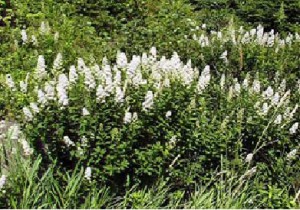 Although certain cultures have experienced herbal amnesia with regard to the “roots” of medicine, herbal medicine is not new. The cardiac glycosides (digitoxin, digoxin) used to treat heart disease are often called digitalis because of their foxglove (digitalis) plant origin. Reserpine, a drug used to lower blood pressure, was extracted in 1947 from the rauwolfia, a plant famous as a folk remedy in India. So while some may view herbal medicine as antidotal and antiquated, despite research evidence to the contrary, it is indeed potent and effective.
Although certain cultures have experienced herbal amnesia with regard to the “roots” of medicine, herbal medicine is not new. The cardiac glycosides (digitoxin, digoxin) used to treat heart disease are often called digitalis because of their foxglove (digitalis) plant origin. Reserpine, a drug used to lower blood pressure, was extracted in 1947 from the rauwolfia, a plant famous as a folk remedy in India. So while some may view herbal medicine as antidotal and antiquated, despite research evidence to the contrary, it is indeed potent and effective.
While it is true herbs and pharmaceutical have some shared history, there are some key differences. One key difference between herbs and pharmaceuticals is the production process. While pharmaceuticals are synthesized in a lab to produce “active” compounds, herbal medicine doesn’t seek to extract an “active ingredient.” Rather herbal medicine retains all the constituents to allow for synergy and amelioration of side-effects. The flower head of meadowsweet (Spiraea alba) pictured above, contains salicin, from which the drug aspirin can be synthesized. Unlike the extracted aspirin, (which can cause gastric ulceration at high doses) the combination of constituents in meadowsweet act to protect the inner lining of the stomach and intestines while still providing the anti-inflammatory benefits of aspirin.
Another difference between pharmaceuticals and Chinese herbs specifically is in the application process. Chinese herbal medicine is very personalized and specific to the patient’s condition and constitution. In contrast, Western medicine can be broadly applied. For example, if 6 people have a headache, they can all take acetaminophen or aspirin and the pain will go away. However, has the medication addressed the reason for the pain or simply supplied a pharmaceutical band-aid?
Those six people may have a headache, but the causes can be completely different. Chinese herbal medicine seeks to alleviate the pain while also addressing the specific underlying cause of each person’s headache. The previous allows for a more rounded approach to care.
Some MD’s have a pejorative view of herbal medicine; although a quarter of modern medicine (prescriptions) contains herbal constituents. Some holistic doctors have a less than stellar opinion of western doctors because of a failure to treat the whole person. The truth is there are times when one treatment style is preferred, and times when both forms can be used in concert for your benefit.
My goal is to help you unravel which is appropriate to your needs to allow for the least amount of trauma. I use this website as one of the tools to achieve that goal. So take some time and check out the Resource or Success Stories section of the site. You may find the last bit of information you need to prompt you to make an appointment at Qi Acupuncture and Wellness to address your health concern.

Good article. Its realy nice. More information help me.
Aw, this was an incredibly nice post. Taking a few minutes and actual effort to generate a really good article… but what can I say… I hesitate a
lot and don’t manage to get anything done.
Feel free to visit my site – home training
Thanks. Glad you enjoyed.
I really like looking through an article that will
make people think. Also, many thanks for allowing me to comment!